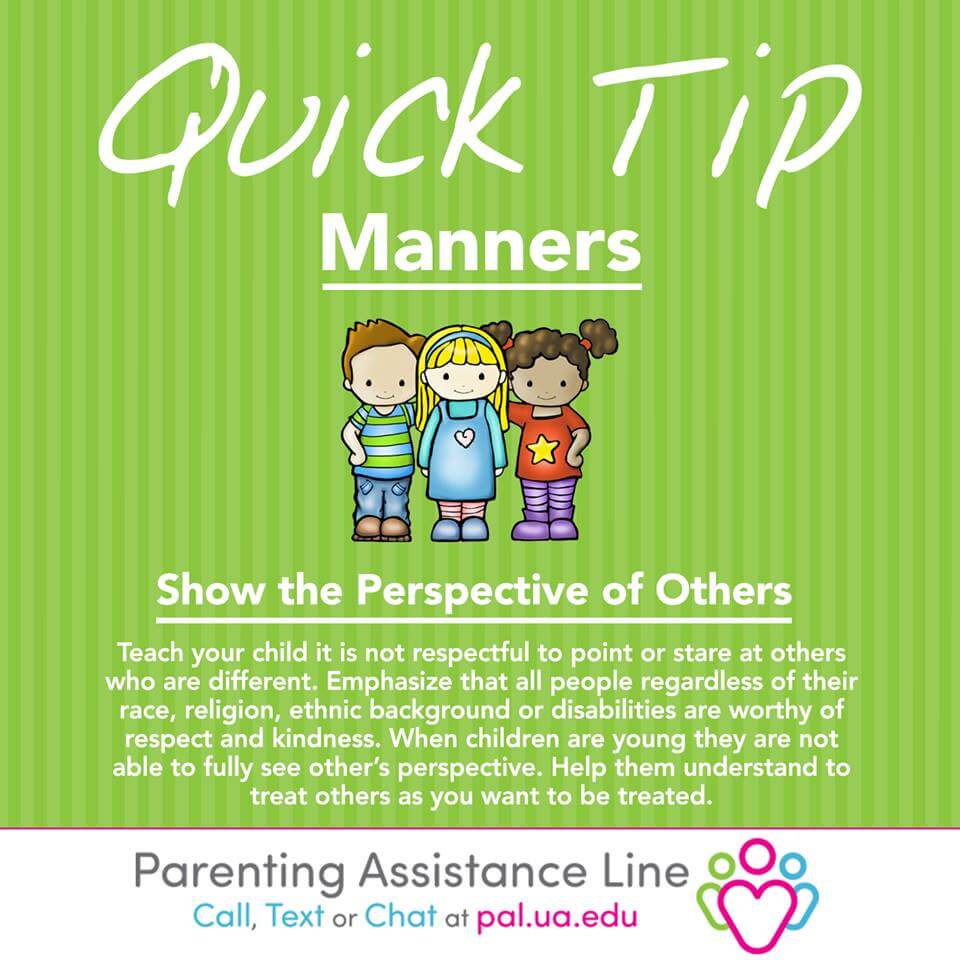Never underestimate the importance of good manners. Your children will grow up to be kinder and more considerate of others if they are taught when they are young. Lead by example. With a little encouragement, children will learn good manners if they see you practice them. Behaving politely is a learning process; therefore, it is best for them to see appropriate behaviors demonstrated.
Manners that can be taught:
- Children as young as 18 months old can learn “Please” and “Thank you”, and how to use appropriately.
- Unless there is a valid emergency, children should learn not to interrupt adult conversations. However, it is important that your child be given a chance to speak. The phrase “excuse me” is the most polite way to enter the conversation, or you might teach your child to put his hand on you when he needs to say something, then you can acknowledge him when appropriate. You’re showing respect for your child when responding in a timely manner, as well as to the other individual. Respect begets respect.
- As a rule, each person should knock on closed doors and wait to see if there is a response before entering.
- Everyone should cover their mouth when coughing or sneezing, and never pick your nose in public.
- When gifts are received, especially from out of town, it is a good idea to have your child write a quick ‘Thank You’ note or make a phone call. Everyone loves to know his or her thoughtfulness was appreciated.
- Teach your child it is not respectful to point or to stare at others who are different. Emphasize that all people regardless of their race, religion, ethnic background, or disabilities are worthy of respect and kindness. When children are young they are not fully able to see other’s perspective. Help them understand to treat others as you want to be treated.
- Show your child the exiting/entering etiquette. If your child is waiting for an elevator, or a building explain that they are to wait until all of the people exit before entering.
- Demonstrate interest in other’s ideas and hobbies by asking questions. This shows the other person you respect and care about them.
- Help your children and others enjoy mealtimes by teaching basic table manners. Come to the table with clean hands and face, sit up straight, place your napkin in your lap, say ‘excuse me’ if you should burp, don’t chew with your mouth open, and thank those who prepared the food for you.
- Let them practice! It takes time to learn new behaviors. Gently remind and guide as needed.







